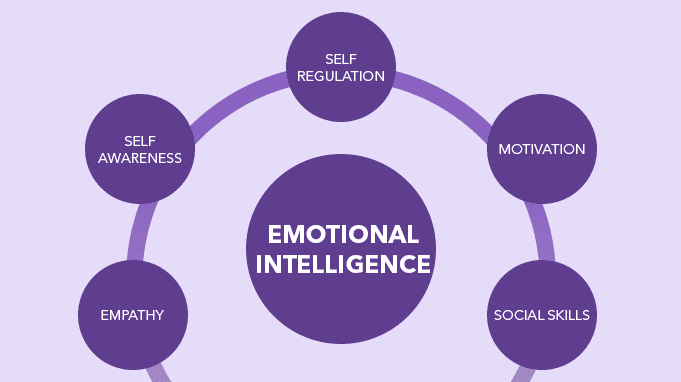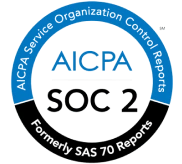Understanding employees’ emotions and managing them is one of the growing talent management needs and trends. With the right knowledge about the emotion of talented people, HR managers and recruiters know how to tackle their shortcomings effectively.
In addition to that, the importance of emotional intelligence in the workplace boosts healthy and trustworthy relationships between employees and employers.
If that is set, overcoming daily operational roadblocks for an average employee is easy. As a result, their entire tenure in the firm becomes smoother and worthy of extending their expected stay.
From an employer’s perspective, a workplace management system can help manage, monitor, and massage employees’ emotions accurately to keep them aligned with the company’s culture.

5 Components Affecting The Importance Of Emotional Intelligence In The Workplace
Self-awareness
Employees and their recruiters must understand the concept of self-awareness. It leads to a self-acknowledging or present state of mind. In other words, employees must know whether they are tired, happy, sad, angry, irritated, joyful or feeling excited during their day at the office.
For example, uKnowva’s Virtual Biometric allows registered employees to punch in/out daily with certain emoticons. It’s one minor exercise for whoever uses the HRMS to stop and acknowledge their “at-moment” feelings.
When they acknowledge that, they stay true to their nature as employees in a company. Further, HRs and recruiting managers study happiness index reports to decipher whether the employee is a job fit.
If employees deliver their work well on time, their emotional intelligence scorecard is quite high. They wouldn’t need their managers to micromanage them. Companies hiring, developing, and managing such employees focus more on achieving strategic goals.
Self-regulation
This concept concludes how well you can adjust your emotions to manage your daily activities well. Because when you are working with people, this self-regulation aspect is one of the crucial factors to manage others. This factor is important to focus on for both: employers and employees.
The result of the self-regulation reflects on employees’ 360-degree feedback in the workforce management system. During that activity, everyone dealing with that employee needs to submit a report or review about their behaviour.
So, if the employee is not managing and controlling their emotions well, the report will not be in their favour. So, the appraisal could be a hindrance for them in that period.
Therefore, employees must regulate their emotions and be aware of the triggering actions or words.
Empathy
This point is the opposite point of view in relation to the mentioned above. Empathy judges how well you understand another person’s emotions.
This is where HRs role gets more crucial and critical. This can involve the relationship manager too while considering the appraisal of any candidate.
Other than that, it’s the moral responsibility of employees to check in with each other. Even more so if they are working in a team – for a joint project. This activity boosts each other’s confidence and does not let the feeling of fatigue, boredom, or lethargy seep in.
That is why HR admins and executives promote using the Social Intranet system/interface. Using it, it’s easier for employees to improve their emotional intelligence scores.
They will be more connected to their team within a few clicks on the chatbox, polls, pulse surveys, and discussion forums. It makes their day even more eventful – while working remotely or off-location.
Motivation
Motivated employees complete their deliverables on time. They manage their projects and time accordingly.
But there are multiple factors that determine a hire's motivational skills. These could be internal and external.
It’s the job of HRs to use the workplace management system to understand how their employees are motivated. It’s depicted from factors like:
- Their daily happiness scores.
- Their regularity in punching in/out.
- Their consistency of delivering projects on time.
- Their contribution in engagement and collaborating with their team members.
- Their creativity and sharp-minded skills for suggesting improvisations for smoother business operations and transactions on the system.
Co-creation and collaboration skills
Employee management is a skill and software as a service that can help HRs and TLs to drive employees for co-creating and to collaborate.
With that, employees get to improve their social skills. Because let’s forget the fact – humans are social. We need to talk things out and sort everyday complex business issues. That’s why communication and collaboration are two major principles that help manage talented people in a firm.
So, with a trusted and collaborative HRMS – uKnowva, companies can keep a check on the emotional intelligence of their top-class hires. They can check whether employees are:
- Assigned any project or not.
- Attending meetings or not.
- Participating in surveys, polls, and discussion forums or not.
- Helping their managers and team members promptly to solve complex workflow issues.
- Using the right tools and technological features available to them in the workforce management system.
The higher the score of their participation in these activities, the more emotionally intelligent they are.
4 Core Reasons That Add To The Growing Importance Of Emotional Intelligence In The Workplace
Using the above components, further reasons are formed to acknowledge how and why emotional intelligence is an integral part of people management for HRs.
Enhanced efficiency in employees:
Employees who understand their emotions well make better decisions. With that quality, they also know how to manage their time and workflow well, especially when using HRMS to aid them in those factors.
Less micromanagement of employees’ workflow:
With automated tasks in the workplace management system and employees’ emotional intelligence, there’s less burden on the recruiting manager to micromanage their workflow.
Managers too can focus on complex KPIs instead of directing employees to complete their daily deliverables.
With higher intelligence and the right tools, employees don’t require supervision at that microscopic level. So it saves a lot of cost and time for the company in the long run.
Takes the career forward:
Employees who deal with their emotions at a calmer level can make better decisions for their career growth. Additionally, if they know themselves well, they would also know if a chosen company is fitted for their profile.
Such employees would stay true to their character while expecting a certain amount of raise of appraisal too. But, most often, they deserve that income raise. And they have clarity on where they see themselves in the next 5 months to 5 years.
So, their skills for setting concrete and achievable professional goals are exceptional. This helps companies to nurture their top-performing talent well too.
Employees get better social and interpersonal skills:
The growing importance of emotional intelligence in the workplace is also mandatory to acknowledge because it helps employees communicate better. As a result, they can repair, reform, and reimagine their interpersonal relationships to acquire and achieve shared organisational goals faster.
Moreover, Social Intranet enables them to build stronger team relationships at a click of a button or two on mobile devices. That’s also without leaving the comfort of their homes.
Conclusion:
The importance of emotional intelligence in the workplace is more understood when HRs study their driving factors and reasons. These are explained above in detail and alignment with the workplace management system. Request a free exclusive demo with our experts today.












